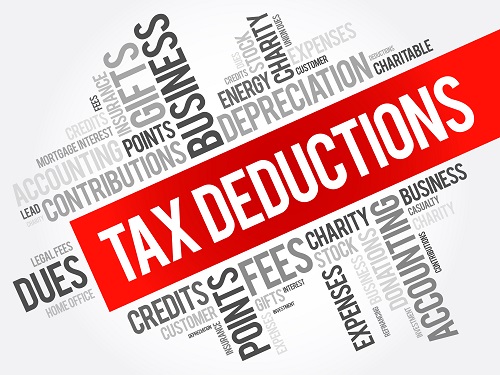'Income from Other Sources': What is Covered Under it for Tax Declaration?
24-June-2021 |
The Income Tax Act, 1961 has defined 'Income from other sources' as one of the heads of income. Though it is a broad term, the Act defines a list of income from different sources that you can consider under this head based on the applicability. So, let us understand what it means and what is covered under it in detail for your tax*-saving needs and responsibilities.
What Is 'Income from Other Sources'?
This includes residuary income that is not chargeable for tax under the other heads of income, such as salary, house property, profits and gains of profession or business, and capital gains, and, which you should not exclude from the total income.
Tax on 'Income from Other Sources'
The types of income taxable under this head are detailed in Section 56, while the allowable deductions on this income are mentioned in Section 57 under the Income Tax Act 1961. Here are the details of the income from other sources listed.
Dividends Income
- According to Finance Act 2020, a TDS of 10% is required on dividend income from a company or a mutual fund over ₹5000 from a domestic company. However, the deducted tax can be claimed while filing ITR. Therefore, the balance dividend less the TDS amount is the taxable income. And, the dividend from a foreign company is added to the total income and taxed according to applicable rates.Winnings in races, lotteries, etc.
- A lump sum income that you receive from the lottery, gambling, game show, horse races, crossword puzzles, etc., is taxed at 30%.Interest on a savings bank account
- The interest amount accumulated in your savings account with a bank, cooperative society, or post office is also applicable under this head. However, the interest earned from such savings accounts up to ₹10,000 is tax-exempt. It is a benefit applicable for residential individuals or HUF(Hindu Undivided Family).Fixed Deposits
- Interest income from three or more fixed deposits will be declared under this head. And, the income earned from fixed deposits combined with another source of income, such as your salary, is applicable for tax consideration.Recurring deposit
- From interest income exceeding ₹10,000 from the recurring deposits, 10% tax will be deducted. The interest earned will be furnished under this head.Exempt Income
- Income earned from investments such as the Public Provident Fund, Employee Provident Fund, etc., that are exempt from tax qualify for income under this head. It is the amount withdrawn on maturity and declared as an exempt income. It is important to note that EPF is tax-exempt after five consecutive years of service.Family pension
- If you have an income earned on behalf of a deceased person through the Family Pension Scheme, you must furnish it under this head. However, the income qualifies for a deduction up to ₹15,000 or one-third of the family pension amount you receive, whichever is lesser.Income not taxed under "Profits and gains of business or profession"
- The following income is taxed under 'Income from other sources' head as per the tax provisions mentioned in Section 56(2):
Donation to a welfare fund for the employees of an organisation when received by an employee.
Income earned from the interest on securities.
Income earned by renting out or hiring plants, furniture or machinery. It also includes income renting from such means along with the building.
Amount received as a benefit from a Keyman Insurance Policy.
Income earned as interest from compensation or enhanced compensation is taxable under this head. However, 50% of such interest gain qualifies for tax deduction benefit.
We have discussed what Income from other sources includes for declaration and tax applicability. However, it is important to note that the government has taken enough initiatives to encourage people to invest in financial products to secure their future. It is evident from the tax deduction and exemption benefits enlisted in the Income Tax Act, 1961. For instance, the interest income upto ₹10,000 from recurring deposits is exempt from tax calculations.
Similarly, investments in savings policy attract tax* benefits. Therefore, insurance providers have introduced comprehensive insurance savings plan solutions to provide life cover and savings options while ensuring tax* benefits.
For instance, the Tata AIA savings plan provides a comprehensive savings insurance plan with a guaranteed1 return on maturity. And, you can benefit from receiving the guaranteed1 income as a regular income for a defined period.
Tax Deduction Not Applicable Under The Head 'Income from other sources'
A few other expenses cannot be claimed as a deduction under the computation of this head. Here is a detail about it.
Any personal expenditures
Amount paid towards Wealth Tax.
Amount mentioned in Section 40A.
Interest amount charged and salaries payable outside India on which taxes have not been calculated and paid or deducted at source.
Conclusion
'Income from other sources' is, therefore, a crucial head of income. It includes different types of income earned such as dividend income, interest income, winnings from games and shows, exempt income, family pension, etc. Therefore, you must declare such income while filing ITR. While the income mentioned under this head is taxable, certain tax deduction benefits apply to some income types. The government provides it to encourage financial planning and protection to lead a happy and secure life. So, make it a point to invest smartly and promptly declare the income earned while considering the tax deduction and exemption benefits!
L&C/Advt/2022/Feb/0236







 FOR EXISTING POLICY
FOR EXISTING POLICY 
 FOR NEW POLICY
FOR NEW POLICY 




